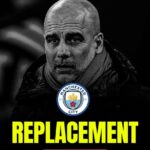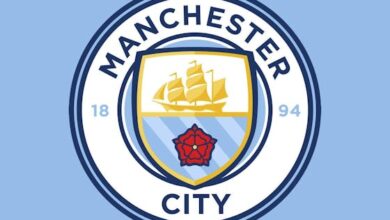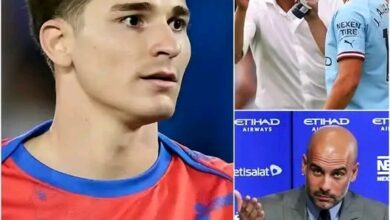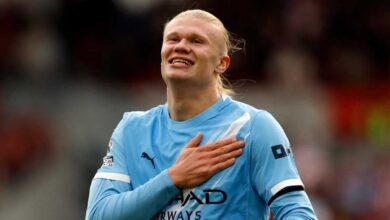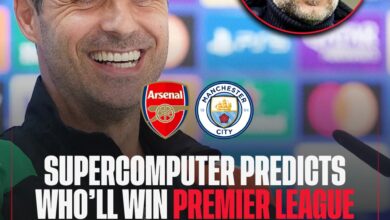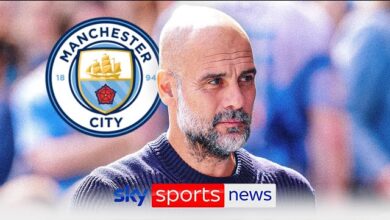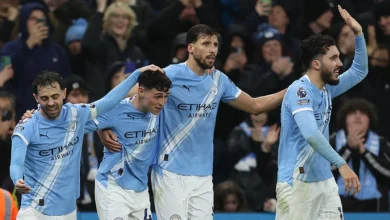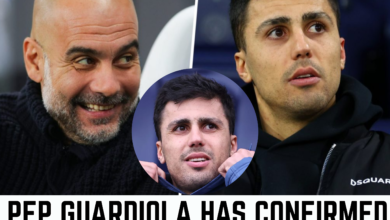Rodrygo Transfer Saga: Premier League Giants Circle as Real Madrid Star Faces Uncertain Future
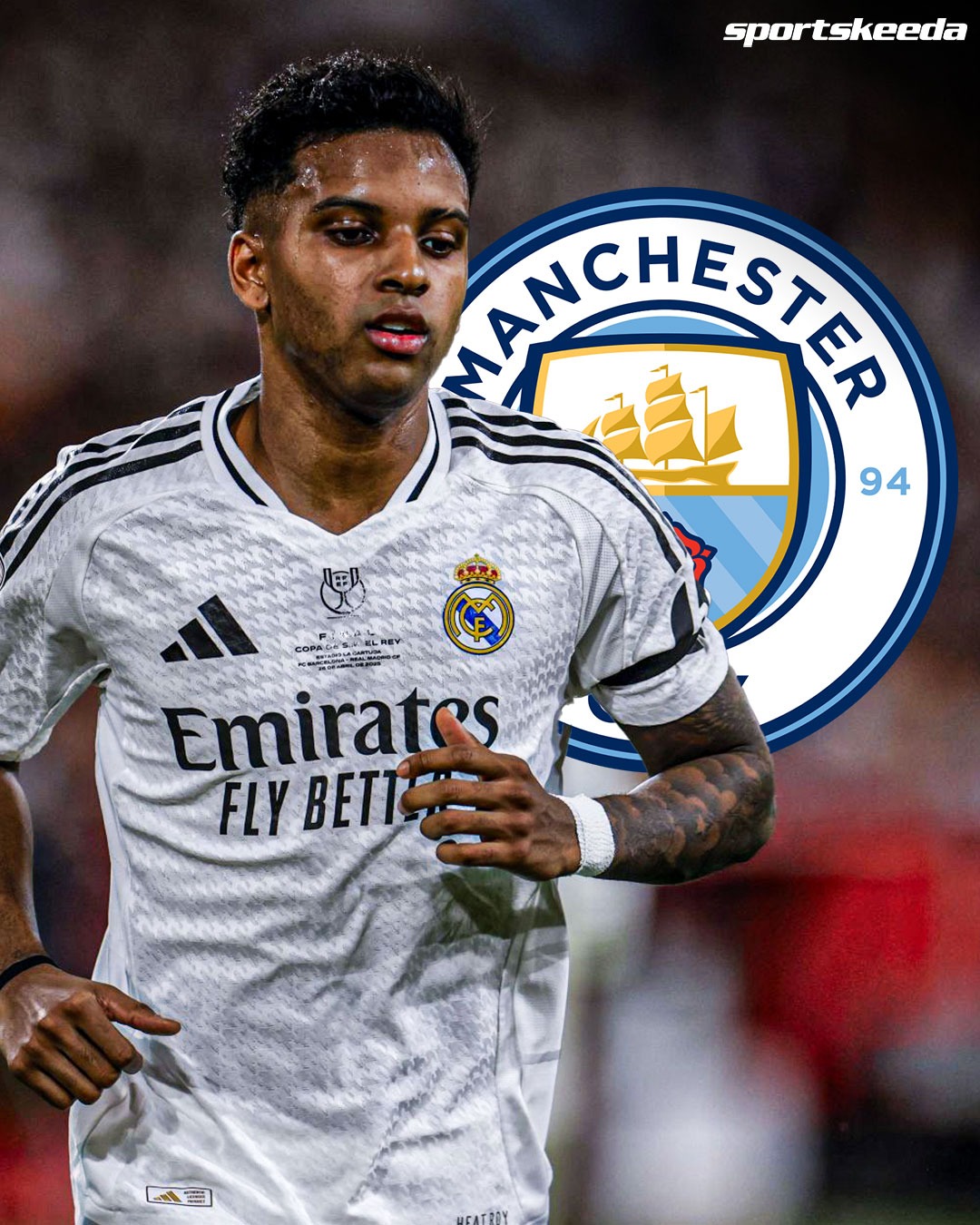
The football transfer market has been set ablaze with one of the most intriguing storylines of the summer window: the potential departure of Rodrygo Goes from Real Madrid. The Brazilian winger, once considered an untouchable talent at the Santiago Bernabéu, now finds himself at the center of intense speculation as Premier League powerhouses Manchester City and Liverpool circle like vultures, ready to pounce on what could be one of the most significant transfers of the decade.
The Changing Landscape at Real Madrid
Rodrygo’s situation at Real Madrid has undergone a dramatic transformation since Xabi Alonso took the reins as head coach. The Spanish tactician, who arrived with a reputation for developing young talent and implementing sophisticated tactical systems, appears to have different plans for the club’s attacking setup. This shift in philosophy has left the 24-year-old Brazilian in an increasingly precarious position within the squad hierarchy.
The most telling sign of Rodrygo’s diminished status came during Real Madrid’s La Liga season opener against Osasuna, where the winger remained glued to the bench as an unused substitute. This decision sent shockwaves through the football community, as Rodrygo had been a consistent performer for Los Blancos over the past several seasons. The sight of such a talented player watching from the sidelines raised immediate questions about his future at the club and whether his time in the Spanish capital was coming to an end.
Alonso’s post-match comments did little to ease concerns about Rodrygo’s position. When questioned about the decision to leave the Brazilian out of the matchday squad, the manager offered what many interpreted as diplomatic but non-committal support: “Rodrygo? Nothing is happening. I count on Rodrygo, of course. It’s just a game. This was my decision.” While these words might appear supportive on the surface, experienced football observers noted the lack of enthusiasm in Alonso’s tone and the generic nature of his response.
The situation becomes even more complex when considering the broader changes at Real Madrid. The arrival of Kylian Mbappé has reshaped the club’s attacking dynamics, with the French superstar occupying a central role in both the tactical setup and the club’s marketing strategies. The potential assignment of the iconic number 10 shirt to Mbappé symbolizes this shift, suggesting that the club’s hierarchy is prioritizing the integration of their marquee signing over maintaining the status quo for existing players.
The Premier League Pursuit: Manchester City’s Strategic Interest
Manchester City’s interest in Rodrygo represents more than just a simple transfer target acquisition; it’s part of Pep Guardiola’s broader vision for maintaining the club’s dominance in both domestic and European competitions. The Spanish coach has long admired Rodrygo’s technical ability, pace, and versatility across the front line. These qualities align perfectly with City’s possession-based philosophy and their need for players who can operate effectively in multiple positions.
Guardiola’s pursuit of the Brazilian is intrinsically linked to the club’s broader transfer strategy. The potential departure of Savinho to Tottenham Hotspur would create a significant void in City’s attacking options, particularly in terms of pace and directness from wide positions. Rodrygo’s profile fits perfectly as a replacement, offering not just similar attributes but arguably superior experience at the highest level of European football.
The tactical flexibility that Rodrygo would bring to Manchester City cannot be overstated. Unlike many wingers who are limited to specific roles, the Brazilian has demonstrated his ability to play across the front three positions, as a traditional winger, an inverted forward, or even as a false nine when required. This versatility is particularly valuable in Guardiola’s system, where positional fluidity and the ability to interchange roles during matches are crucial components of the team’s attacking play.
From a financial perspective, Manchester City possesses the resources to meet Real Madrid’s demanding valuation. The club’s recent success, both domestically and in the Champions League, has strengthened their negotiating position and their ability to attract world-class talent. The potential signing of Rodrygo would represent a statement of intent, demonstrating that City remains committed to competing at the highest level despite recent challenges in the transfer market.
However, City’s pursuit is not without complications. The club’s need to balance Financial Fair Play considerations means that significant outgoings may be necessary to facilitate Rodrygo’s arrival. This explains why Savinho’s potential move to Tottenham is so crucial to City’s transfer plans. The domino effect of these interconnected transfers highlights the complex nature of modern football negotiations.
Liverpool’s Strategic Vision: Replacing Luis Díaz
Liverpool’s interest in Rodrygo stems from a more immediate tactical need following Luis Díaz’s departure to Bayern Munich earlier in the summer. The Colombian winger had become an integral part of Jürgen Klopp’s attacking system before the German coach’s departure, and his absence has created both a positional vacancy and a stylistic void that needs to be filled.
Under the new management structure, Liverpool has identified Rodrygo as the ideal candidate to fill this gap. The Brazilian’s playing style shares several key characteristics with Díaz, including his ability to drift infield from wide positions, his pace in behind defensive lines, and his capacity to link play between the midfield and the forward line. These similarities would allow for a relatively seamless transition in terms of tactical setup and team dynamics.
The timing of Liverpool’s interest is particularly significant. The club is undergoing a period of transition, with new coaching staff implementing their vision for the team’s future. Rodrygo’s signing would represent a statement of intent, signaling that Liverpool remains committed to competing for major honors despite the changes in personnel and playing philosophy.
Liverpool’s historical success in developing South American talents also works in their favor. The club’s track record with players like Philippe Coutinho, Roberto Firmino, and Alisson Becker demonstrates their ability to integrate Brazilian players successfully into their system. This cultural and linguistic familiarity could be a crucial factor in persuading Rodrygo to choose Anfield over the Etihad Stadium.
The financial implications of Liverpool’s pursuit are equally significant. While the club has traditionally been more cautious in the transfer market compared to Manchester City, their recent success and improved commercial revenue streams have strengthened their position. The potential signing of Rodrygo would represent one of their most significant investments in recent years, underlining the importance they place on securing his services.
The Agent’s Role: Orchestrating a Complex Negotiation
The involvement of Rodrygo’s agent in flying to England for meetings with both Manchester City and Liverpool highlights the serious nature of these transfer discussions. Football agents play a crucial role in modern transfers, acting not just as negotiators but as strategic advisors who help shape their clients’ career trajectories.
The agent’s decision to meet with both clubs simultaneously suggests a carefully orchestrated strategy designed to maximize leverage in negotiations. By creating competition between two wealthy Premier League clubs, the representative can potentially drive up both the transfer fee paid to Real Madrid and the personal terms offered to Rodrygo. This approach is particularly effective when dealing with clubs of similar stature and financial capability.
The timing of these meetings is also strategically significant. With the transfer window entering its crucial final weeks, clubs are under increasing pressure to complete their business. This time pressure can work in favor of the selling club and the player’s representatives, as buying clubs may be willing to pay premium prices to avoid missing out on their targets.
The agent’s role extends beyond simple financial negotiations. They must also consider the sporting project offered by each club, the potential for playing time and career development, and the overall lifestyle implications of each potential move. These factors are particularly important for a player of Rodrygo’s age and ambition, as the next move could define the trajectory of his career.
Real Madrid’s Position: Balancing Business and Sporting Needs
Real Madrid’s stance on Rodrygo’s potential departure reflects the complex balancing act that modern football clubs must perform between sporting success and financial sustainability. The club’s reported €100 million asking price demonstrates their recognition of the player’s market value while also providing a significant buffer to discourage casual interest from potential suitors.
This valuation is not arbitrary but reflects several key factors. Rodrygo’s age, proven ability at the highest level, international experience with Brazil, and his contract situation all contribute to his market value. The four-year remaining term on his contract until 2028 strengthens Real Madrid’s negotiating position, as they are under no immediate pressure to sell.
The club’s initial reluctance to part with Rodrygo also stems from their understanding of his unique qualities and potential future value. Despite his current situation under Alonso, the Brazilian remains a significant asset whose departure would need to be carefully managed to avoid weakening the squad’s overall depth and quality.
However, Real Madrid’s position is not entirely inflexible. The club has historically shown a willingness to facilitate player departures when the circumstances are right, particularly when significant transfer fees are involved. The potential €100 million windfall from Rodrygo’s sale could be reinvested in other areas of the squad or used to balance the books following other significant expenditures.
The club’s strategy also involves managing the player’s own desires and maintaining squad harmony. If Rodrygo becomes unsettled or his situation begins to affect other players, Real Madrid may be more inclined to negotiate a departure. The key is finding a solution that satisfies all parties while maintaining the club’s competitive position.
The Brazilian Factor: International Implications
Rodrygo’s situation has implications that extend beyond club football, affecting his status within the Brazilian national team setup. The winger has established himself as a key player for the Seleção, and his club situation could impact his international prospects, particularly with major tournaments on the horizon.
Brazil’s coaching staff typically favors players who are featuring regularly at club level, making Rodrygo’s current situation at Real Madrid potentially problematic for his international ambitions. A move to the Premier League, where he would likely enjoy more consistent playing time, could actually benefit his national team prospects.
The Brazilian market also plays a role in transfer valuations, as players from the country traditionally command premium prices due to their technical ability and marketing appeal. This factor works in favor of both Real Madrid, in terms of their asking price, and the interested Premier League clubs, who recognize the commercial benefits of signing a high-profile Brazilian international.
The cultural adaptation aspect is also significant. Brazilian players have historically adapted well to the Premier League environment, with both Manchester City and Liverpool having positive experiences integrating South American talents. This track record could be influential in Rodrygo’s decision-making process.
Market Dynamics and Transfer Trends
Rodrygo’s potential move reflects broader trends in the modern transfer market, where established stars are increasingly willing to move between Europe’s elite clubs in search of playing time and new challenges. The traditional hierarchy where players like Rodrygo would remain at Real Madrid regardless of their situation is being challenged by more competitive markets and player empowerment.
The financial aspects of the deal also highlight the continuing inflation in transfer fees, particularly for players of Rodrygo’s profile. The €100 million valuation, while significant, is not unusual in the current market for established international players in their prime years. This reflects the enormous revenue streams available to Premier League clubs and their willingness to invest heavily in talent acquisition.
The interconnected nature of modern transfers is also evident in this saga, with Rodrygo’s move potentially triggering a chain reaction affecting multiple clubs and players. Savinho’s potential departure from Manchester City, Luis Díaz’s move from Liverpool to Bayern Munich, and various other connected transfers demonstrate the domino effect that characterizes contemporary football business.
Conclusion: A Transfer That Could Define Careers
As the transfer window approaches its climax, the Rodrygo saga represents one of the most compelling storylines in football. The outcome of this potential transfer could significantly impact not just the player’s career trajectory but also the competitive balance between some of Europe’s most powerful clubs.
For Rodrygo, the decision represents a crucial juncture in his career. At 24, he is at the perfect age to make a transformative move that could unlock his full potential. Whether he chooses the tactical sophistication of Manchester City under Guardiola or the historical prestige and current ambition of Liverpool, the move would likely accelerate his development and provide the platform to establish himself as one of the world’s elite wingers.
The implications extend far beyond the individual player. For Real Madrid, losing Rodrygo would represent the end of an era and the completion of their squad transformation under Alonso. For the pursuing Premier League clubs, securing his signature would represent a significant statement of intent and a major boost to their competitive prospects.
As negotiations continue and the transfer window deadline approaches, all eyes remain fixed on this developing story. The resolution of the Rodrygo transfer saga will likely be remembered as one of the defining moments of this transfer period, with ramifications that extend far into the future of European football.
The coming days will determine whether the Brazilian winger’s future lies in the familiar surroundings of the Santiago Bernabéu or in the exciting new challenge of the Premier League. Whatever the outcome, this transfer saga has already demonstrated the complex dynamics, financial realities, and strategic considerations that define modern football’s highest level.

